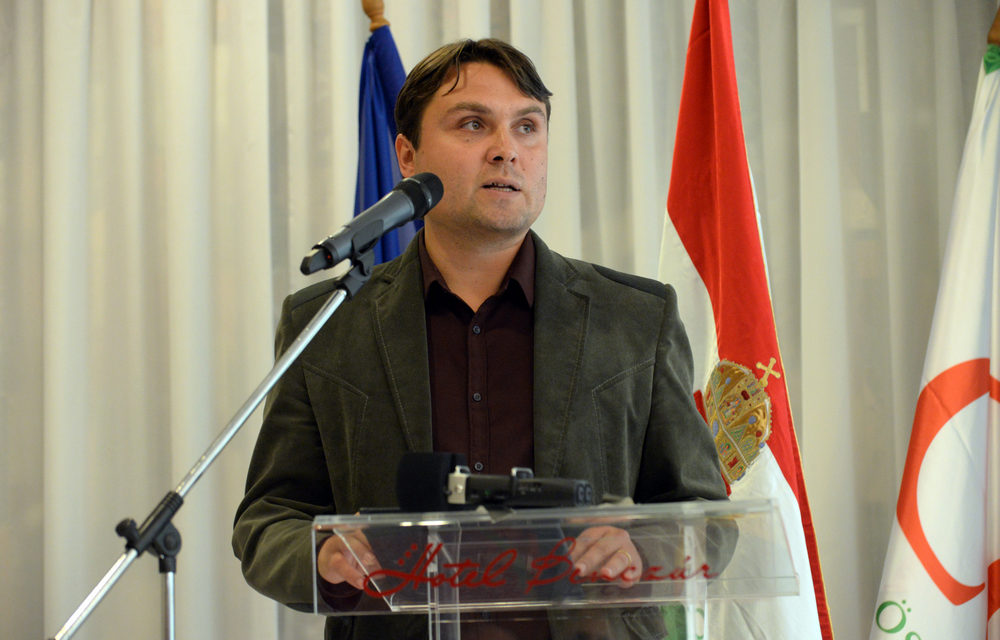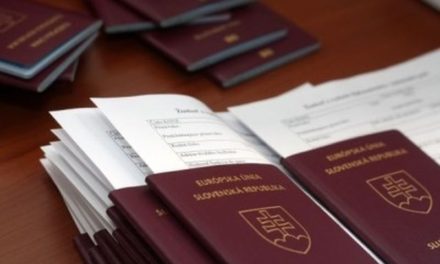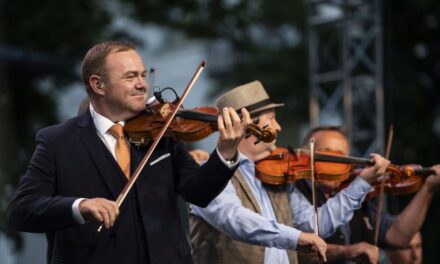"With encouraging goals and a clear organizing principle, the community can be awakened to self-awareness. Without them, the only thing left is atomization, but there are still too many of us to become museum objects too soon," says László Gubík, director of the Esterházy Academy. Review.
I am only publishing the following text now because I no longer wish to participate in post-election reasoning. I would rather now shed light on what the 3 most important challenges of Hungarian politics in the Uplands are in the near future - wrote László Gubík even before the EP elections.
3 points about the stakes of the EP election from the perspective of the Highlands
No, I don't want to talk about war and peace in the hour and a half until the polls close. Serious people have already done that. That's all I'm saying: The national team has won, now you have only one thing left:
Simply put: can we get back on our feet or will the descent continue?
1, Folklorization or self-conscious community
The native European national communities, which were beaten by fate to be a minority, can be classified into 3 groups.
Some see themselves not only as a community, but practically as a state within a state. They play the game with more serious stakes, their goal is self-determination, where appropriate: independence. Such are the Basques, Catalans and Scots.
There are those who see themselves as integral national parts of a nation, who are forced to fight for their collective rights in another state, be they linguistic or cultural rights, or a kind of internal self-determination provided by self-government. These would be others, e.g. in addition to the Germans from South Tyrol, we Hungarians from across the border as well.
Finally, there are those for whom the preservation of tradition and folklore have been reduced and scattered, their social power is no longer demonstrable, and their institutional system has more museum than political value. Their goal is mere existence.
I agree with Pál Csáky, who wrote recently that if we don't want to fall towards folklorization (from two to three groups), then something should be done urgently. In order to arrange the rows, however, you also need an organizing principle, and this, in my opinion, would be the most important task of a politician. Because things don't work without long-term goals (see also: '94/1/8). The community can be awakened to self-awareness with encouraging goals and a clear organizing principle. Without them, all that remains is atomization, but there are still too many of us to become museum objects before our time.
2, Marketing or Content
In order to succeed and grow, you need to be able to sell: vacuum cleaners, shares, concert tickets. This is how it goes in public life too, there is nothing wrong with that. However, it does not matter at all whether we are selling our program and way of thinking or ourselves. I believe in classic politicking, in the competition of ideological frictions and concepts, in high-quality debates, and in asserting interests through teamwork. There is a place under the sun for political activism, but I would warn our community against turning public life into a spectacle. It would be nice if future contests were decided based on the criteria of who has the clearest words and whose program is clearer, not on the basis of how much money has been spent on advertising, events, or the presentation of merits in other areas of life. More teamwork and vision, less individualism and self-promotion!
3, National politics or economic lobby
Regarding the political future of our part of the nation, the third key question is whether the Highlands will become an organically cooperating network of small communities or a sphere of influence of landlords. If the existing institutional system cannot be strengthened, then it can easily fall into the possession of big capital, and from then on, we can hardly talk about autonomous and community-based operation. There have been problems with this in recent years. It's not enough. It is up to us whether we allow national politics to become the private playhouse of economic circles, or whether the Durayst communalism, which has always given this community its spirit, will still be able to self-organize?
Photo: civilek.info













